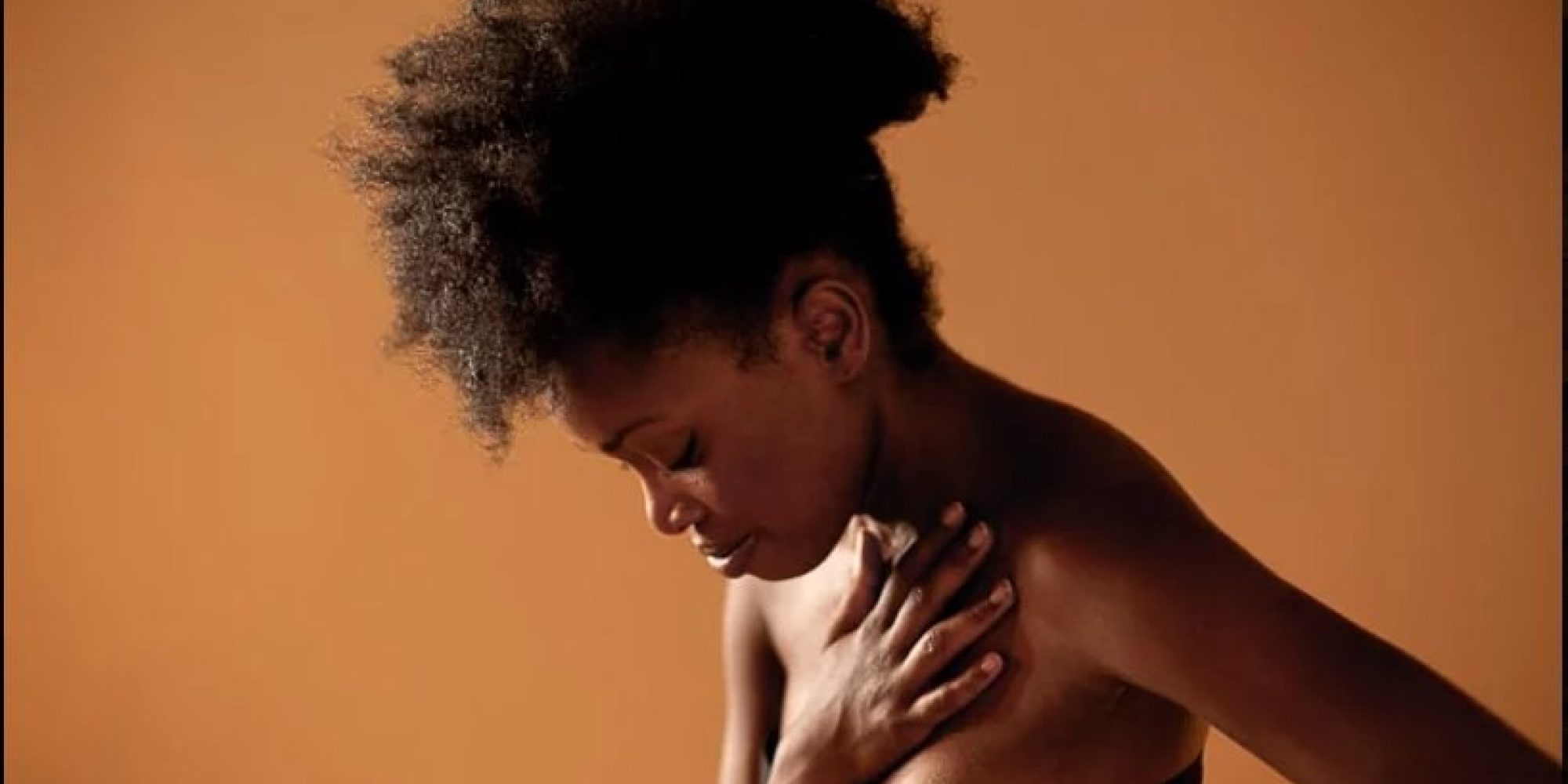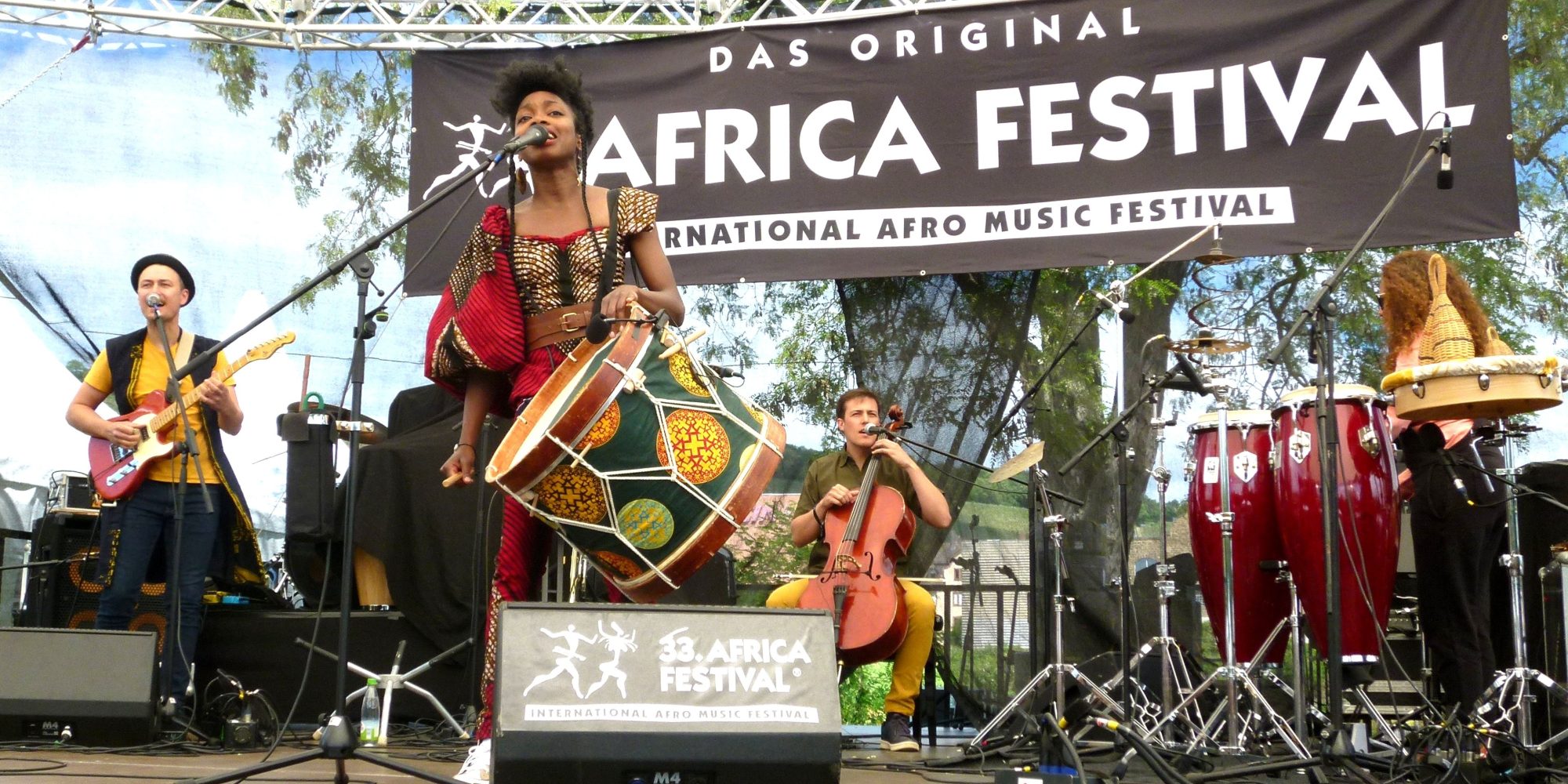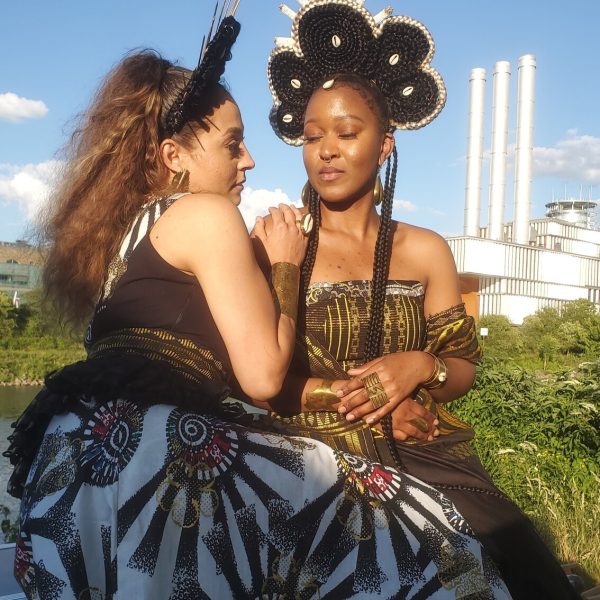Lúcia de Carvalho had a long journey to get to where we finally met her and her romantic and musical partner, Eduoard Heilbronn, at this year's Africa Festival in Wurzburg, Germany.
The middle child of five girls, she spent the first six years of her life in Luanda, Angola. While there, as a former Portuguese colony, Lúcia absorbed the music and culture of Brazil and Cape Verde, as well as music from Angola and surrounding southern African countries. Her mother then left for Portugal with her and her two younger sisters hoping to find work and a better life. But regrettably, she had to leave the three girls at a refugee reception center where they remained for six years until the trio were adopted together and found themselves in Meistratzheim, France, a small Alsatian village.
All that and what happened next has been lovingly documented in a 2018 award-winning film (available on Vimeo with subtitles in several languages) follows de Carvalho and Heilbronn as they travel from France to Angola, Portugal and Brazil to record her 2016 album, Kuzola, and retrace her life story.
As the film's director Hugo Bachelet wrote: “What struck me first about Lúcia was her permanent smile. The way she deals with difficulties and life in general gives no clue as to what she has been through. But behind this bright face, is the very personal quest for identity of this young French woman of diverse background that intrigued me.”
Lúcia's smile is what also struck us when we met with her after her performance at the Africa Festival. It's a smile which seems to emanate both love and light which, perhaps not coincidentally, are the names of her last two albums Kuzola and Pwanga in Tchokwé, the Bantu language of Angola: Kuzola and Pwanga.
“Kuzola means ‘love',” Lúcia explains. “We called it that because it's the energy we felt very strongly while making it. And after the shows and the exhibitions of the movie, people that watched it could feel 'maybe that's not my story, but it's also talking about me.' I think this is because my story is a human story and I was very conscious of that. Every woman, every human I meet, at some point I feel that we are one.“
“And that's what I wanted to honor with this new album,” she continued, “this kind of unity, this kind of oneness. With all the travels I've made it has brought me to this real home that has always been there and will always be here inside of me. I feel I am assuming more of the spiritual part I want to put in my life, the sacred, to feel more connected to nature, people, to animals, to the whole. And that's why it's called Pwanga, which means ‘light’.”
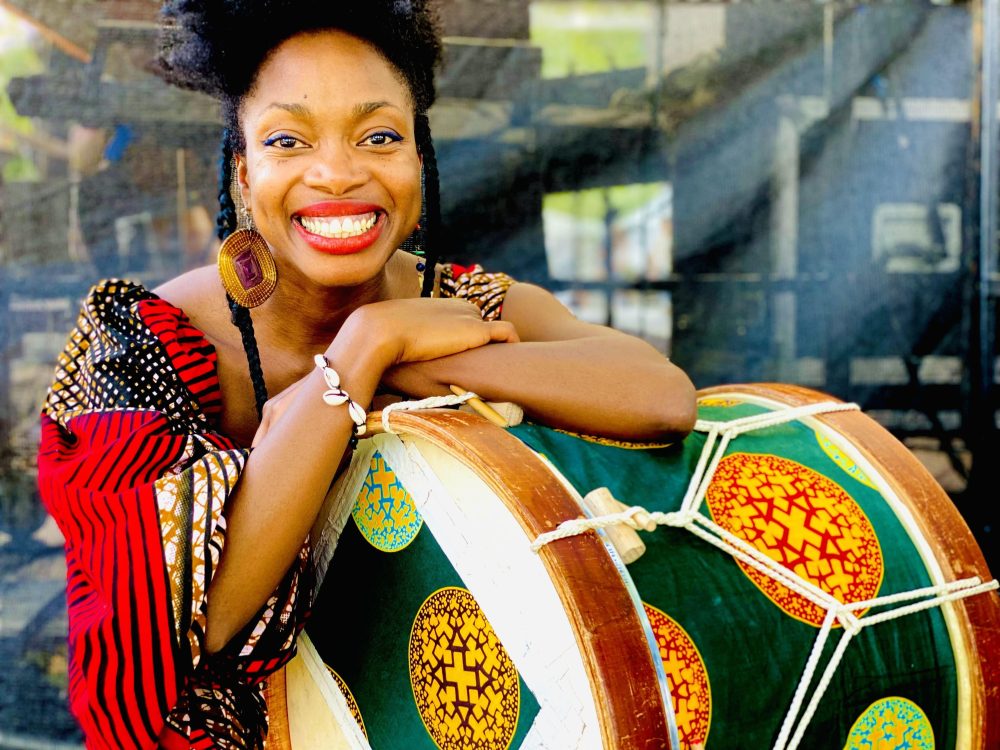
But going back in time to get to the root of her musical journey, Lúcia recalls when, a few years after being adopted, she and her sister went to see a Brazilian band that had come to play in their small French town.
“When I was 15,” she remembers, “I felt like someone who had no land and belonged to nowhere. Though I would say at that time, I didn't care. I was just what I was. As for music, I was listening then to just mainstream radio, so nothing about Brazilian or world music at all. But when I saw this band, it kind of was like 'Oh my God! I know these songs!' When I was little, I used to dream to dance this way because we'd see on television in Angola a lot of Brazilian culture. And seeing this band, it was like I felt like home, not exactly home, but they were singing about Angola and I'm feeling 'It's Angola! It's my land!' So the music was like being home for a while."
“My sister, who was 10, and I were the only Black people in the crowd, and the band members, who were Brazilians, saw us singing and dancing, And at the end, they came to us and said: 'We've seen you sing and dance. Do you want to be part of the dancers of our band?' But I had to wait until I was 16 to start. I was still going to school, but now working with them on the weekends. My adopted mother was really happy for us at the time. She encouraged us to do it, realizing it was about our Portuguese roots and supported us.”
Then two years later, the lead singer wanted to go back to Brazil and the group started to look for a new voice. They told Lúcia that since she “could sing 'more or less' good,” she could be the singer until they found a permanent one. “But,” she adds, “that lasted for seven years until I created my own project.”
A few years into joining the band, she had an encounter which led her to start questioning her identity.
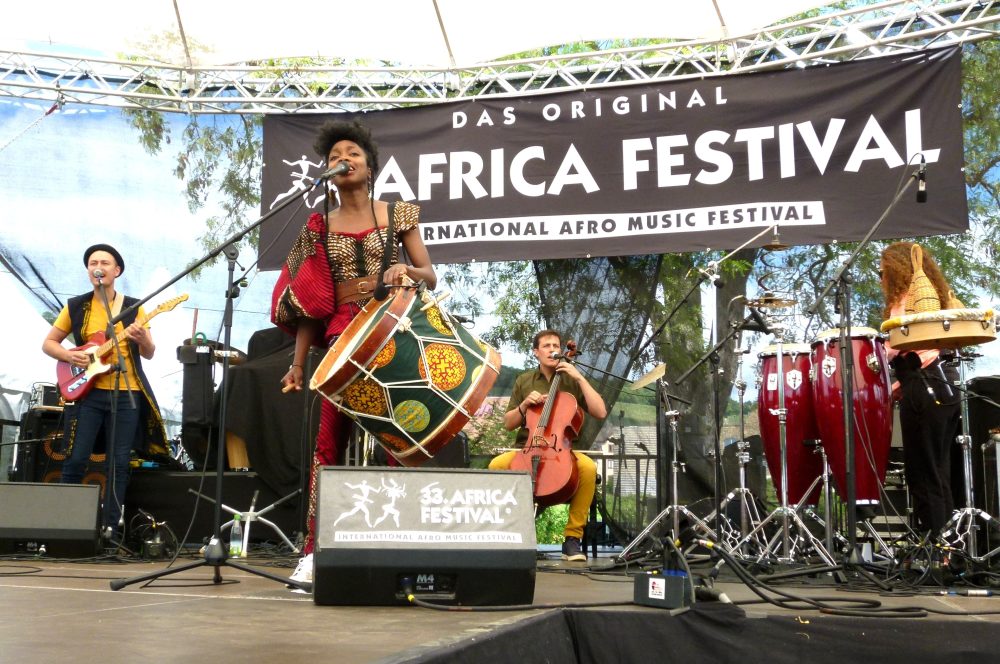
“I met this African guy,” she recalls, “who said: 'You think you're Angolan, but you're not Angolan anymore.' And I started to ask myself 'Who am I?' I realized I didn't feel French, not Angolan, not Brazilian. You understand he was not telling me this out of anger, but out of loving. We laughed about it. He said I was like a Bounty chocolate bar – black outside, white inside. I thought it was really funny. But a few years later, I started thinking about it. And it was another African I met then who helped me to realize it doesn't matter where you are or where you go, nothing will change where you come from. And I thought, 'Is this true too?' I now see the concept of home is very liquid.”
“Going back to Angola really helped me find my roots,” she continues. “When I came back I had this image of this flower whose roots are Angolan, the stem is Portugal, the flowers are Brazil, and France was the land that enabled this flower to grow. This helped me have a clear image that I have different parts, but it's part of a whole, and that's me.
“I think there has always been these three musical influences. I'm not Brazilian, so I don't make traditional Brazilian music. And also, very often, I want to put in some sounds that are not necessarily Angolan, but other African sounds I used to hear when I was young. I would agree that since Brazilian music has African sounds already in it, I'm sort of bringing more of it back into the music.”
Her partner, Eduoard Heilbronn, also had his own journey that led him to Lúcia. “I was traveling around the world, busking in the streets,” he says. “One day, a French guy stopped and said what I was playing was nice and would I like to jam together at his place. And he was married to a Brazilian woman. So he was already playing a little bit of Brazilian music. So I started hanging out and playing some bossa nova. That was the entrance door to Brazilian music. And then I went to Brazil, of course, and stayed there eight months, mostly in Salvador, and studied there too. So now it was three years of traveling and I decided to back to France, to go to school, and become a professional musician. Eventually, Lúcia and I met, and here we are."
And like any couple, they have to navigate and figure out day to day ways to maintain and grow their relationship. But when you add a musical partnership to it, it can become more complex, they both agree.
“For Kuzola, our first album working together,” Edouard says, “it was very hard. Because like every idea I was proposing, we had to debate and debate, you know, like through the parliament and the senate.” They both laugh. “So it was really hard. Then, for this new album, I said to Lúcia: 'Do your compositions. Then give it to me. I will propose an arrangement and then we talk.' So it went much better.”
“Actually, I think I could express myself a lot on the other albums,” Lúcia smiles, “but I really like Edouard's ideas. I trust in him now and we always work it out together. I knew we could because I knew we only had to negotiate some things, and I knew that most of the things he proposed I would like. He has fresh ideas.” Then, she laughs, “And, I was pregnant during this one. So I could not do everything!”
“Maybe we have to make a baby with each album,” Edouard adds, and they both buckle with laughter.
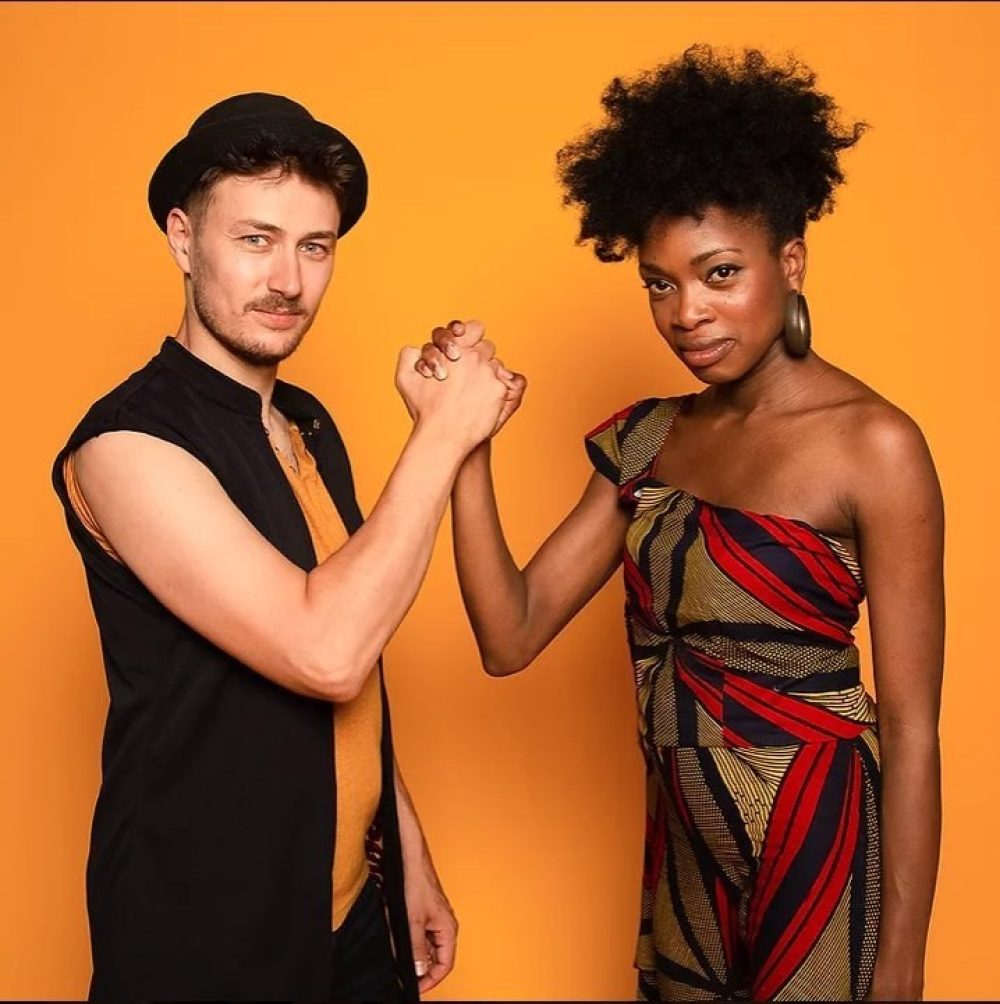
Asking her to talk a bit about the songs on the new album, Pwanga, she says:
“First, I want to mention the musicians we worked with on the album. For example, Ze Luis Nascimento is a Brazilian percussionist who brought a lot. Every musician brought their soul into the songs, and that's what it's all about – the light of the souls. Every song title on this album has only one word, and I realized, actually, it was like I am talking about the same things in every song but with different words.
“For instance, the song 'Happiness.' This was about a moment when you feel that life keeps on being imperfect. It still has a lot of challenges. But there's something that when you just take a breath, feel the silence and then everything is O.K. Nothing matters and everything is there. And that's what inspired me for this song – this moment of grace.
“I think that's the magical part of Brazilian music – its simplicity. Some things we are looking for – some complicated things. But when you stop and just watch the flow of life, you feel that's it. The sun is shining, the water is flowing. What else do you need?”
Related Audio Programs
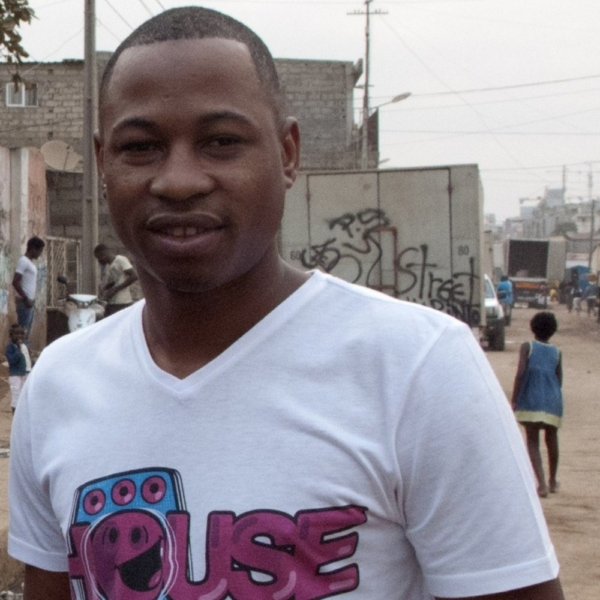
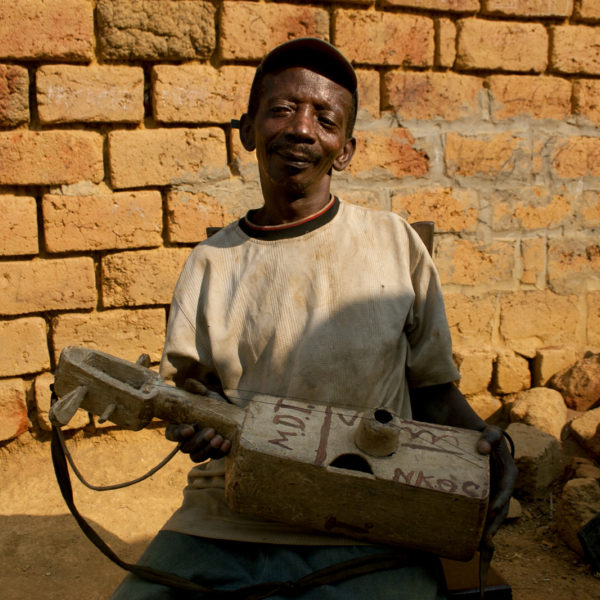
Related Articles









